The Pros & Cons of Using a Smartwatch - Is It Worth Getting a Smartwatch?
By Oktay Ozadam
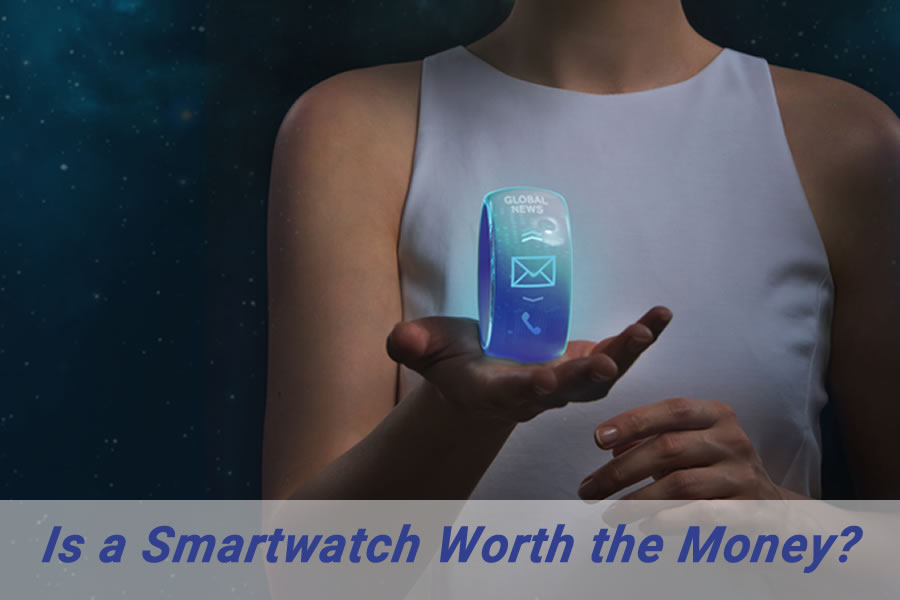
Is a smartwatch worth it?
In this age of digital advances and ever-changing smartphones, a wristwatch has become somewhat… redundant. Why would you need something to tell you the time when your phone is perfectly capable?
However, as phones have been evolving and adding to the competition, so have watches, to the point that they are now smartwatches, to match the intelligence of smartphones.
To answer the question "Should I buy a smartwatch?", we look at what smartwatch usage means for today's generation? And what are some of the main smartwatch features and benefits to make it worth your while.
What Is A Smartwatch?
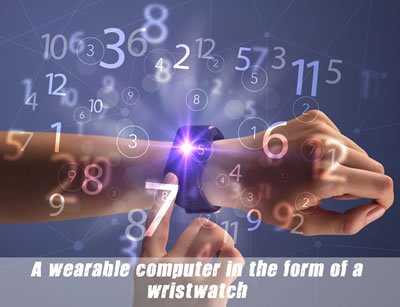
The smartwatch is the great-great-grandson of your grandfather's wristwatch. Today, this intelligent watch is closer to a tiny, wearable computer than the traditional device that only told the time.
To cater to today's digitally advanced generation, smartwatch functions have become more and more complex. A smartwatch can now do a lot more than simply tell what hour it is.
Statistics show that as smartwatches have continued to advance, sales have grown steadily. Whereas in 2017, a measly 5 million sales were recorded, in 2017, a whopping 75 million sales were expected by the end of the year.

What Exactly Does A Smartwatch Do?
We compiled a list of the main smartwatch capabilities, though, of course, these vary from product to product.
- Tells you the time - This function will never really go out of style, and although it's the smartwatch's most basic function, it's by no means its most interesting one.
- Can double as a GPS tracking device -
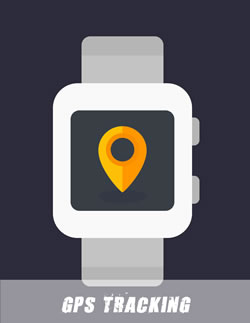 From telling you where you are to tracking your hikes and runs, even allowing you to monitor your child's movements, pet, or fragile loved one. Smartwatches have been making rapid advances in the field of GPS tracking.
From telling you where you are to tracking your hikes and runs, even allowing you to monitor your child's movements, pet, or fragile loved one. Smartwatches have been making rapid advances in the field of GPS tracking.
Big brands like Apple and Sony are battling one another to see who can create the better 'wearable' device, and are continually adding in new functions.
- It will also help you translate foreign languages - Nowadays, it's easy to build in a translating system that allows the wearer to understand a foreign language. Picture this, you might be in a museum in Tokyo and input the description of an exhibit and know, within a few seconds, what it means.
- Allows you to play games - With many smartwatches coming with touch-screen abilities these days, more and more of these devices include at least one or two games (some with the option to download more) to keep the wearer entertained. This function is particularly significant if trying to convince a child to wear a smartwatch.
- A smartwatch can work as a fitness tracker - You've no doubt heard of the FitBit, which allows the wearer to track how many steps they take to ensure they meet their daily goal. A sports watch can be specially programmed to track your workout progress, and some can give detailed information, like heart rate and calories burnt.
- Connects to other mobile devices - Most smartwatches today come with built-in Wi-Fi and Bluetooth, which allows them to communicate with your phone and trade data. Alternatively, a smartwatch can function as a front for your mobile device, allowing you to access your apps even without your phone.
This varies from smartwatch to smartwatch, but some can only function with phones that use the same operating system, while others have their very own OS and can connect with phones, regardless of their OS.
- It functions as a media player -
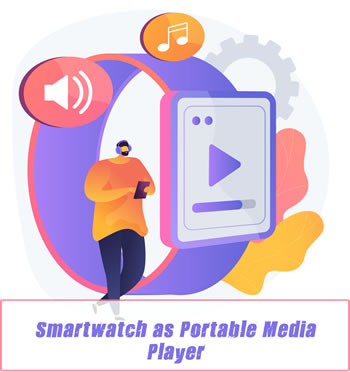 Many modern smartphones allow you to listen to music and even view other media files, like videos and photos. This is great if you want to go for a run (hey, it can track your activity!) and listen to your favorite tunes without having to carry your phone with you.
Many modern smartphones allow you to listen to music and even view other media files, like videos and photos. This is great if you want to go for a run (hey, it can track your activity!) and listen to your favorite tunes without having to carry your phone with you. - You can take photos - Yes, a smartwatch also doubles as a digital camera. The vast majority of smartwatches only operate in 'selfie mode', meaning their camera is on the same side as the screen. Depending on the brand and quality of your watch, it can take some pretty good photos.
- A smartwatch doubles as an altimeter. This is great news if you love going on hikes, skiing, or indulging in other such outdoor, mountainside activities. A smartwatch can typically give you accurate info on how high you are at the present moment.
- It makes for a great compass - Indeed, some of the more advanced smartwatches out there even come with a compass function built-in. Again, this comes in really handy if you enjoy outdoor activities, like treks through the woods.
- A smart wrist-watch can be an accelerometer. It can tell you how fast you are going, which can be useful in pretty much any sport. Such a function is particularly great if you are training for a sporting event or if you're interested in steadily growing your athletic capabilities.
- Your speaker on the go - Your very own DJ on the go. Well, not really, but close enough. Some watches, especially those from high-quality brands, come in with pretty good speakers built-in. Great for playing music at a picnic, but also for taking a call when you're outside or away from your phone.
- Smartwatch as a phone - Right, did we mention that? This isn't true for all of them, but a large majority of smartwatches now come with the ability to double as a telephone. They even allow you to program in some numbers, just like you would in your smartphone's Contacts list.
- Take your temperature anywhere - As smartwatches are getting smarter, they are beginning to make advances beyond mobile apps, expanding into areas such as health. The Blocks Modular Smartwatch, for example, can take your temperature and even measure the level of O2 in the blood, besides being able to monitor your heart rate, of course.
- Indoor or Outdoor Barometer - Yes, some smartwatches can even measure the air pressure where you are. Why does this matter? This can come in handy if you tend to be sensitive to atmospheric pressure (as some are) and can help you orient yourself when you're camping or hiking.
Phew, that was a mouthful. By our count, the modern smartwatch comes with no less than 14 functions, and that's besides being able to tell the time. Still, think a watch is something outdated and useless?
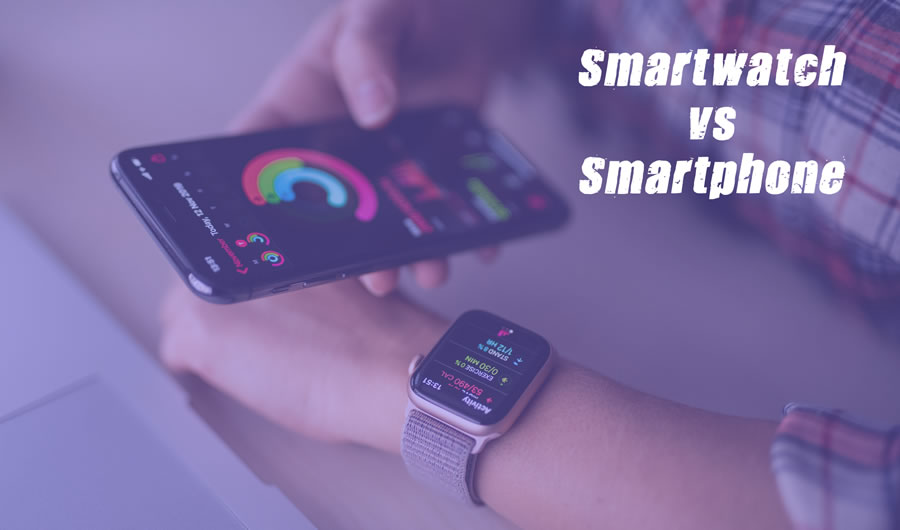
Is A Smartwatch Better Than A Smartphone?
Since a smart wristwatch can fulfill many of the tasks commonly attributed to a smartphone, many wonders if it wouldn't be more worthwhile to go for a watch instead simply.
As with anything, there are arguments for opting for a smartwatch over a smartphone, as well as against.
How smartwatches are better than smartphones:
- They are easier to carry with you. With a phone, you need to have something to carry it in (even if it's just a pocket) and to pay attention not to lose it constantly. But with a watch, it's securely strapped to your wrist, and you can carry on without a care in the world. Wearables have been steadily gaining popularity in recent years, statistics show.
- Your smartwatch is also more accessible. Instead of having to reach into your bag or pocket, unlock your phone, etc., you've got instant access to all your apps and data strapped to your arm.
- A smartwatch can serve as a fitness tracker and be far more accurate than a phone.
- If you're the active type, a smartwatch can help you stay connected without losing precious minutes. For example, when you're running, and you hear a notification in your headphones, you need to stop running and get out your phone from to check what the notification says. With a smartwatch, you can quickly glance down at your wrist without needing to stop what you're doing.
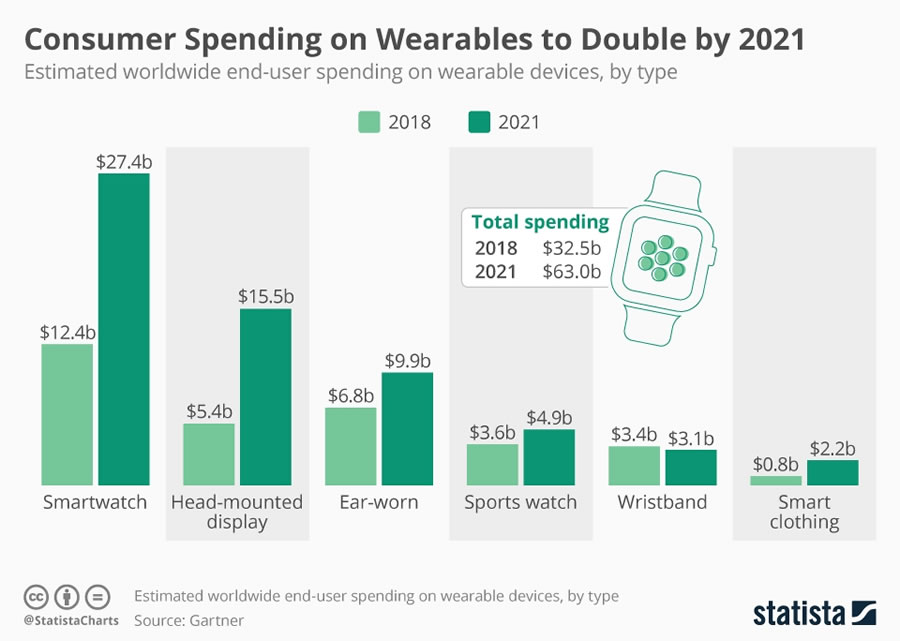
But then, smartwatches also have their disadvantages when compared with smartphones:
- The first and most obvious one is the size of your screen. With smartwatches, companies have been struggling to make screens bigger and better able to display info. But there is only a limited screen size you can get with a smartwatch. You can't see yourself running around with a phone-size watch strapped to your wrist, can you?
- Another issue with smartwatches is that smaller size equals a smaller power supply. Most smartwatch users (even those purchasing from big brands like Apple or Samsung) complain of the limited battery life of their device.
Depending on how much you use your device, a decent quality smartwatch should do the trick for you, but if you rely heavily on it throughout the day, then a phone might be better suited, as it has more advanced hardware.
- And alas, most smartwatches we see today don't work on their own, do they? As we mentioned earlier, they can connect with a mobile device and access a hoard of apps, which allow you to communicate, play, listen to music, etc. But they can only do this by accessing an already existing mobile device.
While there's hope for future smartwatches remedying this problem, at present, it is quite a serious disadvantage.
So, depending on what you're looking to get from a smartwatch, this little wrist device can be worth it… or not. There are good and bad things to be said on both sides, as we've seen.
Benefits of Different Types Of Smartwatches
Yes, we discussed the many smartwatches uses you can take advantage of, but did you know that brands are now making different devices for different types of people?
For example, you wouldn't buy your seven-year-old child the same kind of watch a professional athlete would have, because they don't share the same requirements. Now, the good news is big brands have created a myriad of different smartwatch types for you to choose from, based on your personal needs.
- Pay the bills - Contactless Payment System.
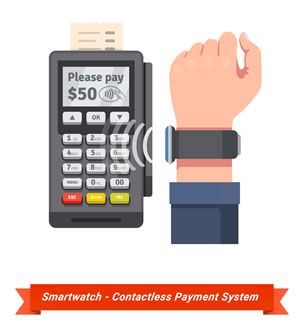
All the big companies have by now enabled using your smart device as a payment method. Google, Samsung, Apple, Fitbit, and Garmin all have 'Pay' apps that allow you to swipe your device on the reader (as you would a credit card) and settle your tab.
While still relatively innovative and fairly new, this technology is accepted more and more at big (as well as smaller) stores all over the world.
- Smartwatch as a source of entertainment
Alternatively, you can look for a smartwatch that is focused on entertainment. Some have a larger memory capacity and thus allow for more games. Others will come with better speakers or again, more stocking space, to enable you to listen to music wherever you go.
- An aid for visually impaired
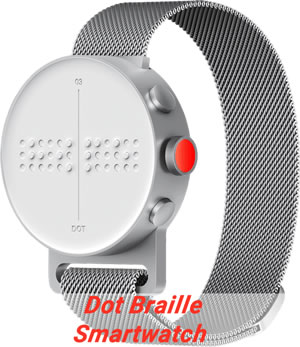
Smartwatches have been making advances for helping the blind, also. The Dot smartwatch, for example, not only allows the visually impaired wearer to tell the time but also notifies them of messages, Facebook notifications, and other useful information, all in Braille.
- Fun for the kids and Peace of Mind for parents
Some smartwatches are explicitly designed for kids and have certain benefits, like pre-installed games and other entertainment apps, easy to wear and allow the parent to track them through GPS, which safeguards the child whenever they are out of the parent's sight.
- A nifty gadget for athletes
Once again, sports are a huge domain of business for smartwatch manufacturers. Depending on the sport you practice (be it golf, jogging, CrossFit, cycling, fitness, swimming, or backpacking), you can purchase a smartwatch suitable for you.
The watch should monitor your heart rate, count your steps, and the calories you burn, your speed, body temperature, and even the level of oxygen in your bloodstream. And of course, there are many smartwatches available that are waterproof and support swimming and other water-related activities.
- Your health on your wrist
Just like big brands are making smartwatches that track your heart rate for sports, they're also designing special ones for people dealing with various health issues.
A smartwatch can today monitor your heart rate, blood pressure, blood sugar, and temperature. A smartwatch can also be worn in bed and monitor sleep patterns.
Some smartwatches can even be used to help patients with dementia or Alzheimer's. Such devices alert caregivers if the person has left a predefined area and help caregivers track them. Considering how many people with neurological issues get lost each year, this is a huge innovation.
Some specially designed smartwatches can even guide the wearer back to a preset home address, should they get lost or confused while out.
Most recently, Fitbit has announced that they are partnering with a team of specialists from Stanford to determine how a smartwatch might detect the on-set of Covid-19, and thus limit the spread.
- Track your pet from your smartwatch
Yes, nowadays, you can even get your pet a smartwatch...sort of. The Smart Collars, like Fitbark, function similarly to a smartwatch and is becoming more and more popular. It will allow you to track your pet from your smartwatch, and is especially useful if your furry friend is used to wandering around the neighborhood.
These smart devices for your pet also monitor their health, which, as pet owners know, can be a tricky subject. Since a pet can’t tell you what’s wrong, a smartwatch-collar will alert you if there is any unusual activity in their body, so you can take your pet to the vet.
- A potential alert system for the hearing impaired
There are also smartwatches designed especially for deaf wearers, which send out vibrating alerts and call notifications, but they are still being developed. Such a device will probably become available in the next few years.
- Assistance for the elderly (including Fall Alert)
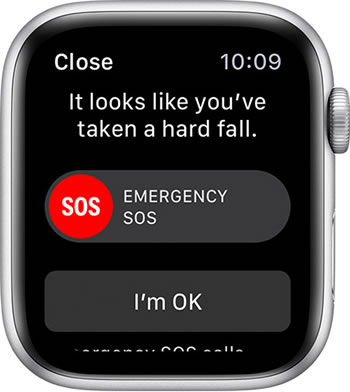
Even if the elder in your life does not have dementia or other such neurological illnesses, it's smart for them to wear a smartwatch. As we know, many elders don't carry around mobile phones as much as younger generations do, so by wearing a smartwatch, they can ask for help anywhere they go.
For example, if they're suddenly facing a health emergency, such as an inability to breathe or a potential cardiac event, they can press an emergency button that alerts health professionals and carers.
Some smartwatches even have a Fall Detection app. Most notably, the Apple Watch 4 and 5 can identify a hard fall and sounds out an alert, which the wearer can either dismiss or allow to continue. It can be set to alert emergency services if the wearer does not dismiss the alert, or to contact a carer or family member.
While such a function is most useful to the elderly, it is also a great function for anyone.
- A wearable computer for keeping your team connected
A smartwatch ensures the safety and health of your workers and allows them to send one another notifications and updates about shared tasks, keeping them more connected.
According to Samsung, specially-designed smartwatches can also come in handy to agents in the field, such as police officers or firefighters, by notifying them of an alert faster than a dispatch or phone would.
- A way to keep the beat
Yep, you can now tune an instrument or keep track of the decibel level with your smartwatch. An exclusive smartwatch for musicians also allows you to sync up with band members and maintain a steady rhythm, which can be a great help during practice.
- Your trusty, wearable co-pilot
According to the US Air Force, satellite navigation smartwatches are worn by pilots as they are useful in receiving the right signals and maintaining GPS navigation by tapping into multiple sources.
- Use your watch to find your phone.
Once again, since most watches don't work without a phone, the smartwatch companies have the safety of your phone in mind. With apps like Find My Phone, you can easily link the phone to the watch and track down your missing device.
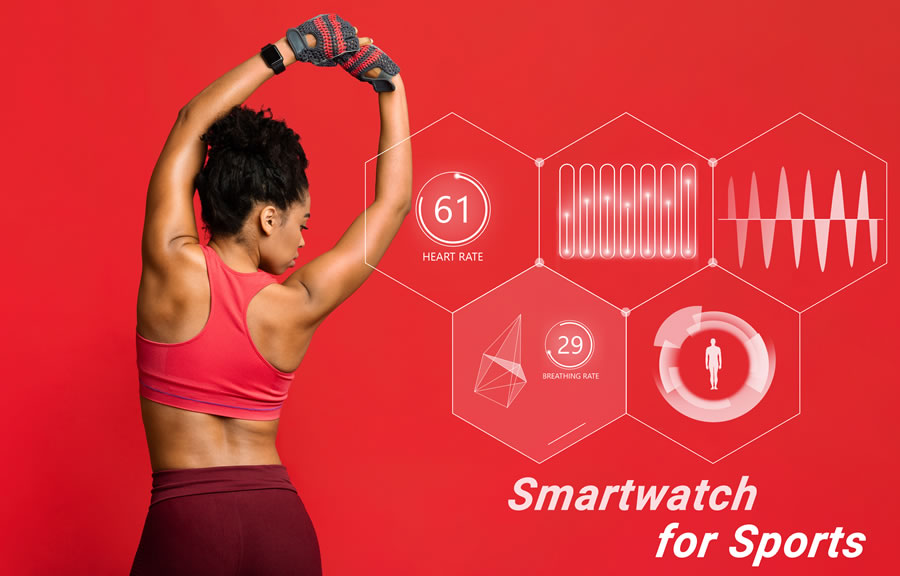
| Smartwatch Features and Usage | ||||
|---|---|---|---|---|
| Features | Uses | |||
| GPS |
|
|||
| Health |
|
|||
| Sports |
|
|||
| Notifications |
|
|||
| Entertainment |
|
|||
| Space Orientation |
|
|||
Bottom Line: Are Smartwatches Worth the Money?
In our opinion, yes, smartwatches are worth it. You can opt for an affordable wearable device, or go all out, depending on your budget. Since most big brands have been getting more and more into the smartwatch trade, there's no shortage of smartwatches to choose from.
What we do urge you to do, however, is carefully consider the reason you're buying a smartwatch and what you plan on doing with it. The more accurate the answer, the more you can find a device that suits your needs.